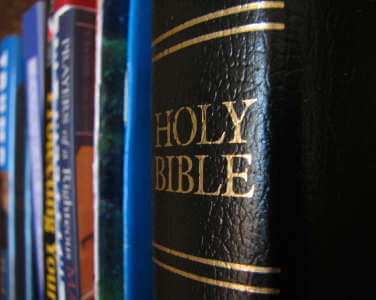
resides within us, it also is true that we must make ourselves
available to His working by filling our minds with the Word of God. If
you’re seeking fresh revelation from God, you’re ready for some very
practical guidelines and methods for mining this precious silver (see
Prov. 2:1-8).
Some will undoubtedly prefer to gaze at the beauty of the
treasure others have rather than picking up the tools and digging for
themselves. But the revelation of another will not have the same power
to redeem our souls that a personal encounter with God’s Word has.
At first, these study tools may seem useless. But without
these practical instruments to help us, we will not be successful in
extracting the precious silver ore of wisdom and revelation.
Digging Tools
My daddy had quite an elaborate workshop in our home. His
many expensive and sophisticated tools qualified him to do difficult
carpentry, plumbing and electrical home-improvement tasks. But he also
had a small toolbox that he carried with him everywhere.
As a little girl, tagging behind my daddy, I learned to
identify the tools in that little box. I even learned to use some of
them. In a similar way, we do not need an elaborate theologian’s
library to study God’s Word effectively, but we do need to have a
toolbox filled with basic items that will help us in our task.
The Scriptures describe the practical work involved in
digging for silver when they admonish us to “Study to show thyself
approved unto God, a workman that needeth not to be ashamed, rightly
dividing the word of truth” (2 Tim. 2:15, KJV). If we aren’t willing to
apply ourselves to the work of study, we don’t want wisdom badly
enough. We need to get alone with God and ask Him for a greater hunger
for Himself.
A Place of Study
In this world of electronic noise and distractions, we
must prepare a place for study that will afford us the quiet we need to
“Be still, and know that [He] is God” (Ps. 46:10). We need a place
where we can effectively limit the interruptions of clients, family,
pets and phone calls.
Our place of study should include a desk (or table),
writing utensils and shelves for storing study books. The necessary
tools for mining silver should be conveniently placed so we don’t have
to run to the basement or upstairs to locate something we need. We
should take care to prepare a comfortable place to seek God and furnish
it with all the necessary instruments.
The Bible
A prerequisite for Bible study is a good study Bible. It
should be one with print that can be easily read and with paper that is
suitable for marking.
I find the King James Version unsurpassed for its beauty
of expression in the English language. However, in view of language
changes, a reading of various modern translations will help to throw
light on many Bible passages.
Some translators have allowed their theological bias to
enter into their translating work. Therefore, it is wise to anchor our
reading in the King James Version and to use other versions as
supplements, referring to the original languages, if possible, when
questions are raised regarding translation.
Here is a partial listing of other useful translations, each with its own study helps.
The Scofield Reference Bible is a popular resource. The
text is prominent in bold type, with comments at the foot and numerous
synopses on various subjects. Some of the notes are excellent; to many,
others are unacceptable.
In places the comments are strongly Calvinistic. Unlike a
number of other Bibles, it is not self-pronouncing. A loose-leaf,
wide-margin edition is available for notes.
The Thompson Chain-Reference Bible has a host of notes in
the margin and the “Condensed Encyclopedia,” which is an excellent
section divided into more than 4,000 topics. It also contains
information on the canon and the principal English versions, an
outlined analysis of each book, a number of maps, a concordance and an
index. This Bible also has a good harmony of the four gospels and
several excellent charts.
The New King James Bible is believed by many to be the translation nearest to the original transcripts of the Bible.
The New Jerusalem Bible is esteemed by many, along with
several other reference Bibles that are worthy of mention such as The
New Oxford Reference Bible, The Holman Study Bible and The New American
Standard Bible.
The Worrell New Testament includes notes by the
translator, A.S. Worrell. It is footnoted with many helpful alternative
renderings and explanatory notes.
The Emphasized Bible by Joseph Bryant Rotherham is useful
as a study and reference book, particularly in sections containing Old
Testament notes.
The Moffatt Bible translation has many brilliant insights. However, the liberal theology of the author shows on occasion.
The New Testament in Modern Speech by Richard F. Weymouth
is a clear, simple, dignified translation. It is sound from a doctrinal
viewpoint.
The New Testament: In the Language of the People by
Charles B. Williams is valuable, particularly in the translation of the
Greek tenses.
The New Testament in Modern English by J.B. Phillips is a
paraphrase. Its low-key prose is almost casual. For example, the
familiar King James “holy kiss” (see 1 Cor. 16:20) becomes “shake hands
all around.”
Reading the same verse from different translations can
shed light on the passage’s true meaning as we ask the Holy Spirit to
unveil the divine message it contains. Although it is good to follow a
daily reading schedule, it is not necessary to devour large portions of
the Scripture at a time.
Many times the Holy Spirit will illuminate one word in a
passage, and it becomes beneficial to search out that word in other
passages. He will always lead us to unearth the richest veins of silver.














































